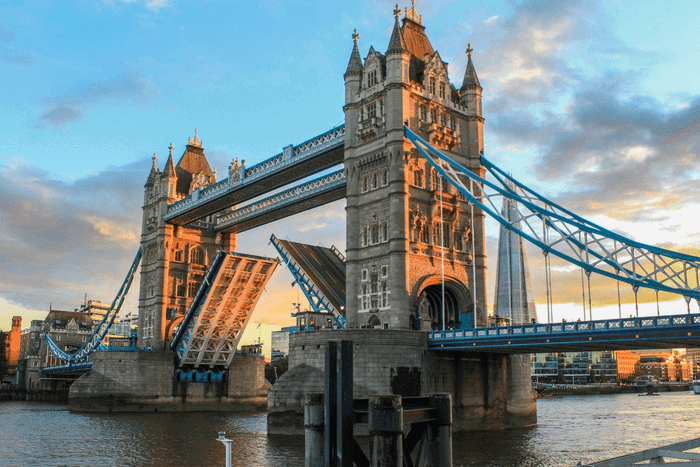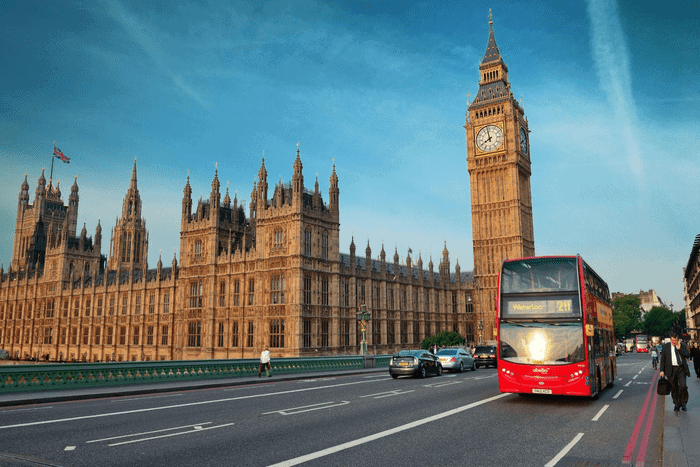If you’re a start-up owner or an entrepreneur, your travel needs are a little bit different from a tourist heading abroad. Not only does the lifestyle require a space with high-speed internet for staying connected with employees back home, but it is also a routine and lifestyle that enables you to thrive.
This all starts with finding suitable London accommodation that ticks all of the right boxes in a neighborhood that meets your needs. What those needs are, differs from person to person and may include things such as close proximity to a co-working space, fitness studio, or great places for dining out. This online source is a great starting point as it offers a wide choice of accommodation rentals to suit all budgets, whether you’re after a short or long-term stay.
In this guide, discover our top travel tips for start-up owners and entrepreneurs who are visiting London, including how to get the best deals and see the city sights along the way.

Set a budget
First things first. Determine how much you would ideally like to pay per week or month for your London accommodation, as well as how much this budget can stretch if you can’t find something at your starting price. By having solid figures to work with, you will be more confident to negotiate a discount with hosts, particularly if you’re planning a longer stay.
Remember, London is a notoriously expensive city but prices vary considerably from neighborhood to neighborhood. If you want to be in the heart of all the action with views of the London Eye, then be prepared to pay for it. That being said, there are plenty of affordable rentals further out and with convenient public transport connections on the London Underground.
Be a savvy flyer
If you’re traveling regularly as an entrepreneur or a start-up owner, the costs of flights can quickly add up. To save a few dollars, try and book flights on weekdays (rather than weekends), as they tend to be cheaper. This is also the case with super early morning and late-night flights.
While you probably have a go-to search platform for finding flights, be sure to shop around before making the final booking. Sometimes, it’s cheaper to book directly with the airline, while other times, OTAs (online travel agencies) have better deals.
It’s also worth joining airlines’ frequent flyer programs to get special discounts, upgrades, and other perks. It might also make you eligible to use their airport lounges where you can work in peace and quiet while waiting for your flight to London to depart.
Know your needs
Long-term stays for digital nomads tend to have different needs from sightseeing tourists. Perhaps you want to be close to a yoga studio or a gym for your daily workout or maybe you want great shopping and cafes right outside your front door. Think about your lifestyle back home and what elements of that you want to retain while in London. Then open up Google Maps and check what is available near the accommodation you’re considering and see whether it ticks all of your boxes.
If a co-working space is essential, then that might be a good starting point. Many co-working sites list the appeal of the neighborhood in which they are situated, including any facilities and dining options. After selecting a co-working space, start searching for accommodation nearby or somewhere that is easily connected by the London Underground.

List your must-haves
Next, write down any amenities or facilities that the property must have, such as high-speed internet, a fully-equipped kitchen, or a washing machine. Maybe an apartment complex with a fitness center and swimming pool is a “must-have” or perhaps it’s a small plot of greenery for creative inspiration.
Consider whether you need a desk somewhere to set up your laptop or if working at the dining room table will suffice. Also, think about the environment you need to be in to thrive as an entrepreneur (and look for properties that meet those requirements) and consider whether you want a rental that includes regular cleaning or if that’s something you’re happy to take care of yourself.
Negotiate a great deal
Most holiday rental sites list prices based on weekly or monthly rates, which is great if it’s just a short business trip. But you can often get a better deal if you’re staying in London for a few months while working abroad.
Contact the owner directly to ask if they are willing to negotiate on the price and don’t be afraid to put a figure on the table. The worst they can respond with is “no”, in which case, continue looking elsewhere.
Many hosts will be happy to offer a discounted rate for long-term stays, particularly if you have a good track record to back you up. If you’re not booking through a site with online reviews, consider forwarding a rental reference to vouch for your good character.
Also, think of it from the business perspective of the owner. Offer to take care of the cleaning and that’s one less expense they have to pay. In return, they might be willing to pass that saving onto you.
Don’t leave it to the last minute
Sometimes, last-minute travel is unavoidable, particularly if the prospect of a great opportunity presents itself. But in most situations, making your reservations at the last minute is a travel mistake to avoid. This refers not only to flights and accommodation but also to restaurant reservations with colleagues.
If you plan well in advance, you’ll have a better chance of getting your first pick of accommodation and dining establishments, without the stress of having to find something “adequate” at the last minute.
Understand your credit card fees and perks
Different banks have different fees and charges associated with using their cards abroad, whether it’s for EFTPOS purchases or withdrawing cash from ATMs. Check with your bank before departure so that you aren’t slapped with unexpected fees when you go to pay for something in London.
On the flip side, some financial institutions also offer significant perks if you book flights, accommodation, and rental cars using their cards. This might be discounts or cash backs that can help to counter the costs of frequent travel.
Shop like a local
While London has some incredible restaurants and atmospheric pubs for eating out, there’s nothing quite like preparing a healthy and hearty meal at home. As in many cities around the globe, farmers markets in London have exploded in popularity in recent years and are the best places to head for fresh fruits and vegetables, artisan baked goods, and sustainable meats.
In Clapham, you’ll find the Venn Street Market with its delicious cheeses and fresh seafood while Stoke Newington is home to the organic and biodynamic-focused Growing Communities Market. Both Brixton and Notting Hill host iconic farmers’ markets, as does Marylebone High Street. Each week, you can pick a different market and enjoy exploring a new neighborhood while you shop.
Find your work-life balance
As they say, “All work and no play makes Jack a dull boy” and it would be a shame to travel all the way to London and spend the entire time doing business. While your priorities may be meeting with suppliers, networking at an event, or attending a conference, try to create an itinerary or weekly work schedule that gives you enough time to rest, exercise and soak up the sights of the English capital.
Rather than hitting the gym, why not hit the streets of London to explore on foot and get your dose of cardio along the way? Whether that’s shopping along Oxford Street, jogging along the River Thames, or strolling through Kew Gardens, you can experience a lot while meeting your step count.
Pack for all weather conditions
The English weather has a reputation for being wet and overcast but that’s not always the case. In summer, you can get days on end of gloriously sunny skies and wear nothing but shorts and a T-shirt.
That being said, it’s good to bring plenty of warm clothes, no matter what time of the year you are visiting, as well as a waterproof jacket and/or umbrella. In the wintertime, you’ll need a well-insulated puffer jacket or coat, plus a beanie, gloves, and scarf.
As on any business trip, there may be times when you need to put your best foot forward, particularly if you’re meeting with investors or colleagues. So pack at least one formal outfit that’s suitable for meetings, whether they be in an office or around a dinner table.